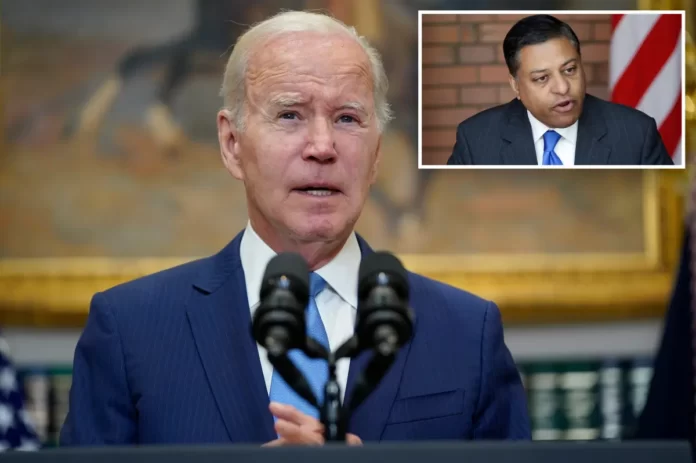Dr. Rahul Gupta, the White House’s drug czar, has come under scrutiny as a focal point for the alleged toxic atmosphere within the Biden administration. The contention surrounding Dr. Gupta’s role has intensified, leading to growing concerns about the working environment within the White House.
Critics have pointed to Dr. Gupta’s leadership style and decision-making as contributing factors to the purported toxicity within the administration. His handling of key issues related to drug policy and public health has sparked internal conflicts and discord among White House staff.
The controversy surrounding Dr. Gupta has escalated amidst reports of dissatisfaction and tension among White House staffers. Accusations of micromanagement, lack of transparency, and a disregard for input from colleagues have further fueled discontent within the administration.
Dr. Gupta’s tenure as the White House drug czar has been marked by controversy and internal strife. His management of critical initiatives aimed at addressing the opioid epidemic and other pressing public health concerns has been met with criticism and skepticism from both within and outside the administration.
The allegations against Dr. Gupta have cast a shadow over President Joe Biden’s administration, raising questions about its ability to effectively address the nation’s drug policy and public health challenges. The perceived dysfunction within the White House has prompted calls for accountability and reform.
Despite the criticisms leveled against him, Dr. Gupta has defended his actions and leadership approach. He maintains that his decisions are guided by a commitment to public service and the best interests of the American people.
The ongoing turmoil within the Biden administration underscores the challenges of governing amidst a polarized political climate and competing interests. The controversy surrounding Dr. Gupta highlights the complexities of leadership and the need for effective communication and collaboration within the highest levels of government.
As the White House seeks to navigate these turbulent waters, the spotlight remains firmly fixed on Dr. Rahul Gupta and his role as the administration’s drug czar. The outcome of this scrutiny will have far-reaching implications for the Biden presidency and its ability to enact meaningful change in the realm of drug policy and public health.
Amidst the ongoing controversy, Dr. Rahul Gupta’s supporters have defended his record and leadership style, emphasizing his extensive experience in public health and his dedication to combating substance abuse. They argue that his efforts have led to significant advancements in drug policy and prevention initiatives, despite the challenges he has faced within the administration.
However, the criticisms against Dr. Gupta continue to resonate, with some pointing to the need for greater accountability and transparency in his role as the White House drug czar. Calls for reform within the administration have grown louder, with demands for a more inclusive and collaborative approach to policymaking and decision-making processes.
The debate surrounding Dr. Gupta’s leadership highlights broader concerns about the functioning of the Biden administration and its ability to effectively address the nation’s most pressing issues. As the administration grapples with internal discord and external challenges, the focus remains on finding solutions that promote unity, accountability, and progress.
In response to the allegations of toxicity within the White House, President Biden has reaffirmed his commitment to fostering a culture of respect, collaboration, and inclusivity. He has called for greater unity among his staff and emphasized the importance of working together to deliver results for the American people.
Moving forward, the Biden administration faces the daunting task of restoring confidence and trust in its leadership amid mounting criticism and scrutiny. The resolution of the controversy surrounding Dr. Rahul Gupta will be a critical test of the administration’s ability to address internal challenges and move forward with its policy agenda.
